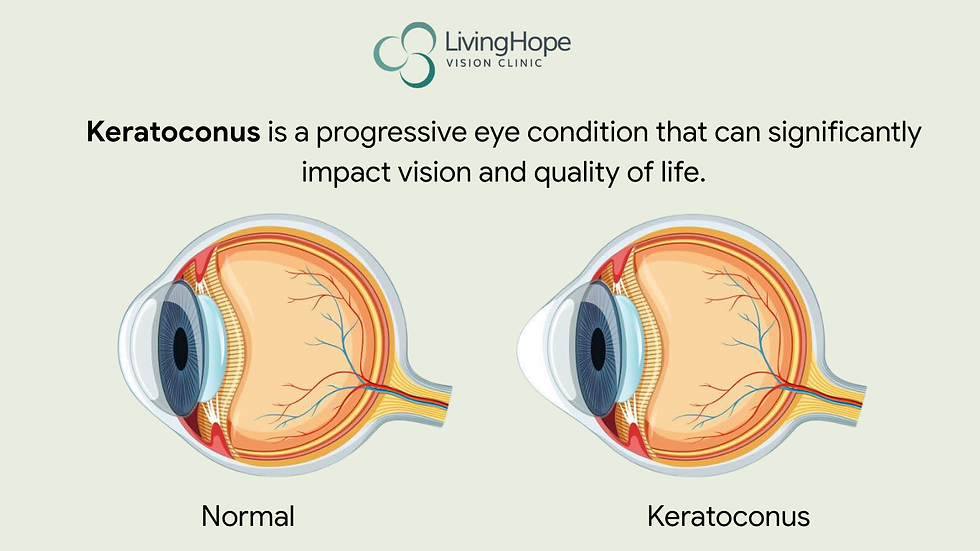Understanding Keratoconus: Symptoms, Causes and Treatment Options
- LH Manage
- Aug 12, 2025
- 2 min read
Keratoconus is a progressive eye condition that can significantly impact vision and quality of life. At LivingHope Vision Clinic, we specialize in diagnosing and managing keratoconus with advanced treatment options to help you maintain clear vision and protect your eye health.

What Is Keratoconus?
Keratoconus is a condition in which the cornea—the clear, dome-shaped front surface of the eye—gradually thins and bulges into a cone shape. This irregular shape distorts light as it enters the eye, leading to blurred or distorted vision, increased sensitivity to light, and difficulty with night vision.
Symptoms of Keratoconus
Blurred or distorted vision
Increased sensitivity to light and glare
Frequent changes in eyeglass prescriptions
Difficulty seeing at night
Eye strain and headaches
Causes and Risk Factors of Keratoconus
The exact cause of keratoconus is not fully understood, but several factors may contribute to its development, including:
Genetics: A family history of keratoconus may increase the risk.
Eye Rubbing: Excessive eye rubbing has been linked to the progression of keratoconus.
Underlying Conditions: Certain conditions, such as allergies or connective tissue disorders, may play a role.
Environmental Factors: UV exposure and oxidative stress may contribute to corneal thinning.

Treatment Options for Keratoconus
At LivingHope Vision Clinic, we offer personalized treatment plans tailored to your needs, including:
Specialty Contact Lenses: Rigid Gas Permeable (RGP), scleral, and hybrid lenses provide clear vision by creating a smooth optical surface.
Corneal Cross-Linking (CXL): A minimally invasive procedure that strengthens the cornea and slows keratoconus progression.
Intacs® Corneal Implants: Small implants that help reshape and stabilize the cornea.
Custom Eyeglasses: In early stages, prescription glasses may improve vision.
Surgical Options: In advanced cases, a corneal transplant may be necessary.
If you have symptoms of keratoconus or have been diagnosed with the condition, don’t wait—early intervention is key.
To explore your treatment options and protect your vision for the future.




Comments